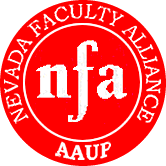What does this mean?
As many of you know, exigency is equivalent in many respects to a declaration of bankruptcy for an academic institution -- though an internal declaration that does not seek or provide any protection against creditors outside the university. Instead, it is a form of seeking relief from internal creditors -- ie, faculty and staff.
In other words, it is the legal basis for dissolving rights and protections enshrined in the System Code, institution by-laws and faculty/staff contracts. This includes faculty protection against changes in employment status (up to and including termination) which would ordinarily require at least one years' notice for most professional staff (ie those with 3 years or more time in service) and untenured faculty and which would not be allowed at all for tenured faculty.
The process for a declaration of exigency is spelled out in the Board of Regents Handbook, title 2 (the System Code), chapter 5, section 4.5 (PDF). Faculty should consult this section (as well as related section, 4.6 concerning curricular reorganization), and section 4.7 concerning terminations during exigency.
Note in particular that this process is one that is based on a report by the institution president and faculty senate jointly to the Board on whether the conditions of exigency do in fact exist:
Before a recommendation is made to the Board of Regents by the chancellor and the president or presidents that a financial exigency should be declared:
1. The chancellor and the president or presidents shall be satisfied that all available means to reduce the expenditure levels (i) are exhausted, (ii) would not be adequate, (iii) would not be feasible or (iv) would not be appropriate.
2. The president or presidents shall seek the advice of the senates or senate representatives of System institutions to be affected by the proposed declared financial exigency concerning said exigency
While we may have more to say on the next steps in this process should the condition arise, faculty members should also avail themselves of resources concerning the prospect of a financial exigency from the American Association of University Professors, including the section on "Financial Exigency" in the AAUP Recommended institutional regulations on academic freedom and tenure. This document includes the following recommendation:
Circumstances of financial exigency obviously pose special problems. At institutions experiencing major threats to their continued financial support, the faculty should be informed as early and specifically as possible of significant impending financial difficulties. The faculty—with substantial representation from its nontenured as well as its tenured members, since it is the former who are likely to bear the brunt of the reduction—should participate at the department, college or professional school, and institution-wide levels in key decisions as to the future of the institution and of specific academic programs within the institution. The faculty, employing accepted standards of due process, should assume primary responsibility for determining the status of individual faculty members.
Again, while it would premature to conclude that an exigency is going to occur, it should be the responsibility of every faculty member to do our part to prepare by informing ourselves of the legal requirements for a declaration of exigency and the process by which this must be carried out within NSHE code and UNLV by-laws.
The NFA, both statewide and at UNLV, will uphold its responsibility to its members, and to all faculty (including pro-staff), to provide reliable legal information and to be a responsible, vigorous advocate for faculty rights in this crisis.
We have every hope and indication that our administration recognizes and supports the principle quoted above, although many of these issues will be resolved at the System level before they even reach our campus. So it is important that faculty members pay close attention to the statements and actions of the Board. The NFA will ensure that AAUP principles concerning exigency are made known to the members of the Board as the Regents consider moves that could include a formal declaration of exigency or other measures that would be tantamount, legally and morally, to exigency.
Watch for more information on the UNLV Faculty Alliance blog, and watch for updates from the NFA and Faculty Senate leadership in the days and weeks to come.
In solidarity,
Gregory Brown
Professor of History, UNLV
President, UNLV Faculty Alliance
Vice-President, Nevada Faculty Alliance






No comments:
Post a Comment